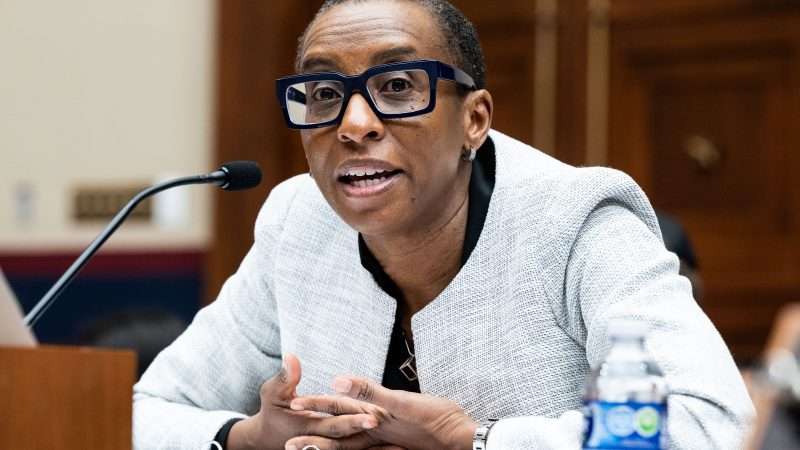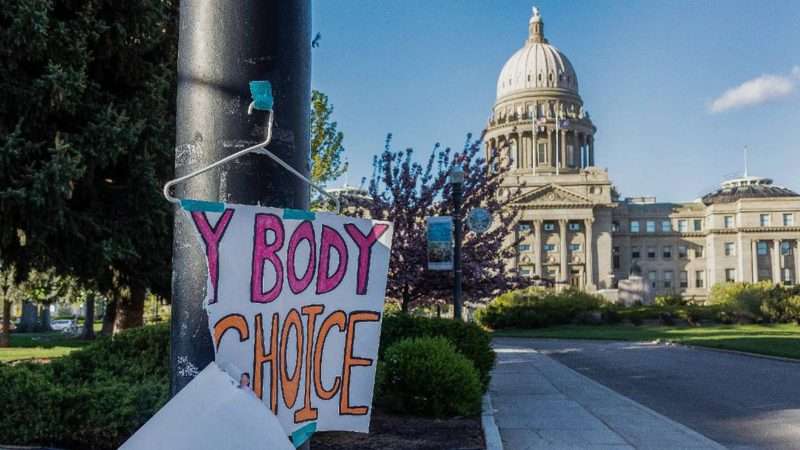On December 29, Judge Ann Aiken of the U.S. District Court for the District of Oregon took senior status, but she did not retire from the bench. On the very same day, Judge Aiken denied the federal government’s motion to dismiss Juliana v. United States, the so-called “Kids Climate Case,” and directed the parties to begin preparing for a trial. It is an astounding order that threatens to bring cliamte litigation back to the Supreme Court, and outcome few climate activists should want.
A bit of background. The Juliana litigation began in 2015, when a group of youth plaintiffs filed suit alleging, among other things, that the federal government’s failure to control greenhouse gases violates their substantive due process rights to life, liberty, and property, including a right to a “stable climate system,” violates their right to equal protection, and failed to uphold its “public trust” obligation to hold certain natural resources in trust for the people and for future generations.
As one would expect, the federal government sought to dismiss the case. Not only did the district court deny the motion to dismiss, it also denied the federal government’s request to certify the decision for interlocutory review. Faced with the prospect of extensive discovery requests and a looking trial, the federal government sought a writ of mandamus and stay of the proceedings, first with the U.S. Court of Appeals for the Ninth Circuit, and eventually at One First Street.
While the Supreme Court did not grant the federal government’s motions, it issued two orders—one in July and one in November 2018—that made clear the justices believed Judge Aiken had misapplied the relevant rules (including that governing interlocutory review) and not-so-subtly directing the Ninth Circuit to get the district court in line. The Ninth Circuit issued a stay and Judge Aiken reconsidered her prior decision to deny interlocutory review, leading to the Ninth Circuit’s decision in January 2020 to dismiss the case on standing grounds.
One might have thought the Ninth Circuit’s decision would have put an end to the Juliana litigation. After all, the Ninth Circuit’s mandate instructed the district court to dismiss the case, so that is all there was left to do after the plaintiffs had exhausted their opportunities for en banc review and certiorari. But Judge Aiken had other ideas, and instead ordered the parties to have a settlement conference and granted the plaintiffs an opportunity to amend their pleadings so as to keep the case alive.
As one would have predicted, the federal government again sought to have the case dismissed, arguing that the district court was required to do so given the Ninth Circuit’s mandate, and that even were that mandate not binding the plaintiffs continue to lack standing and failed to state viable constitutional or other claims upon which relief could be granted. Once again, Judge Aiken refused to let the case die, denying the federal government’s motion, save for dismissing the plaintiffs’ equal protection and Ninth Amendment claims.
From Judge Aiken’s opinion:
The parties do not disagree that the climate crisis threatens our ability to survive on planet Earth. This catastrophe is the great emergency of our time and compels urgent action. As this lawsuit demonstrates, young people—too young to vote and effect change through the political process—are exercising the institutional procedure available to plead with their government to change course. While facts remain to be proved, lawsuits like this highlight young people’s despair with the drawn-out pace of the unhurried, inchmeal, bureaucratic response to our most dire emergency. Top elected officials have declared that the climate emergency spells out “code red for humanity.” Burning fossil fuels changes the climate more than any other human activity. The government does not deny that it has promoted fossil fuel combustion through subsidies; tax exemptions; permits for fossil fuel development projects; leases on federal lands and offshore areas; permits for imports and exports; and permits for energy facilities. Despite many climate change suits around the country, in 2023, the United States witnessed record-breaking levels of oil and gas production. And recent calculations conservatively estimate that the United States provides the oil and gas industry $20,000,000,000.00 annually in an array of subsidies.
Defendants maintain that, because tackling the climate crisis is complex, and no single remedy may entirely redress plaintiffs’ harms caused by climate change, the judiciary is constrained by the Constitution from offering any redress at all. . . . Defendants contend that the issue of climate change is political in its nature, and that redress of plaintiffs’ alleged injuries must be sought from Congress. … That unnecessarily narrow view overlooks one clear and constitutional path to shielding future generations from impacts of the onslaught of environmental disaster: that it is the responsibility of the judiciary to declare the law that the government may not deprive the People of their Constitutional guarantee of the God-given right to life. U.S. CONST. art III; U.S. CONST. amend. V; Marbury v. Madison, 5 U.S. (1 Cranch) 137, 170 (1803).
Plaintiffs’ allegations are that collective resolve at every level and in every branch of government is critical to reducing fossil fuel emissions and vital to combating climate change. That curbing climate change requires an all-hands-on-deck approach does not oust the Court from its province or discharge it of its duty under the Constitution to say what the law is. Marbury 5 U.S. at 170. Combatting climate change may require all to act in accord, but that does not mean that the courts must “throw up [our] hands” in defeat. . . .
The legislative and executive branches of government wield constitutional powers entrusted to those branches by the People through the democratic process. … So too, as part of a coequal branch of government, the Court cannot shrink from its role to decide on the rights of the individuals duly presenting their case and controversy. Marbury, 5 U.S. at 170. . . .
Some may balk at the Court’s approach as errant or unmeasured, but more likely than not, future generations may look back to this hour and say that the judiciary failed to measure up at all. In any case over which trial courts have jurisdiction, where the plaintiffs have stated a legal claim, it is the proper and peculiar province of the courts to impartially find facts, faithfully interpret and apply the law, and render reasoned judgment. Such is the case here.
Among other things, Judge Aiken declares the existence of a substantive due process right to a “climate system that can sustain human life.”
Exercising “reasoned judgment,” the Court finds that the right to a climate system that can sustain human life is fundamental to a free and ordered society.
Defendants contend plaintiffs are asserting a right to be free from pollution or climate change, and that courts have consistently rejected attempts to define such rights as fundamental. Defendants mischaracterize the right plaintiffs assert. Plaintiffs do not object to the government’s role in producing any pollution or in causing any climate change; they assert the government has caused pollution and climate change on a catastrophic level, and that if the government’s actions continue unchecked, they will permanently and irreversibly damage plaintiffs’ property, their economic livelihood, their recreational opportunities, their health, and ultimately their (and their children’s) ability to live.
In this opinion, this Court simply holds that where a complaint alleges governmental action is affirmatively and substantially damaging the climate system in a way that will cause human deaths, shorten human lifespans, damage property, threaten human food sources, and dramatically alter the planets ecosystem, it states a claim for a due process violation. To hold otherwise would be to say that the Constitution affords no protection against a government’s knowing decision to poison the air its citizens breathe or the water its citizens drink. . . .
We cannot vow to uphold the Constitution’s protection of a God-given right to life, and at the same time, exercise “judicial restraint” by telling plaintiffs that “life” cannot possibly include the right to be free from knowing government destruction of their ability to breathe, to drink, or to live. “It cannot be presumed that any clause in the [C]onstitution is intended to be without effect.” Marbury, 5 U.S. at 174. Plaintiffs have adequately alleged infringement of a fundamental right and defendants’ motion to dismiss is denied on this issue.
The most startling part of Judge Aiken’s decision is not the sweeping assertions of constitutional rights, but her refusal to certify the opinion for interlocutory review, without comment. This is striking because it was Judge Aiken’s prior refusal to permit interlocutory review which ultimately prompted two separate Supreme Court orders indicating that she had misapplied the standard in 28 U.S.C. §1292 and the Ninth Circuit’s ultimate stay.
The last time around, Judge Aiken deigned to explain her actions, offering both an explanation for her initial denial of interlocutory review and her subsequent reversal. This time, however, her opinion offers not a word in defense of her decision to deny the federal government’s request, even though nothing has changed that would alter the application of §1292’s standards to this case, and the Supreme Court’s admonitions remain on point. There is simply no other way to describe this aspect of her opinion other than as outright judicial defiance (and illustrates how some “shadow docket” orders are more a measured response to misbehavior by lower court judges than a sign of High Court activism).
Judge Aiken’s decision is not merely defiant, but reckless as well. The Department of Justice has little choice but to seek review of this decision, even if through a writ of mandamus, and if the U.S. Court of Appeals for the Ninth Circuit does not intervene, the question could reach the Supreme Court, where the justices are already considering whether to grant review of other climate litigation.
Those filing various nuisance and tort suits against energy companies have been working hard to keep their cases out of federal court (and with much success). Whereas the energy companies characterize the suits as unbounded efforts to dictate energy policy in state courts, the plaintiffs in those cases stress that they are simply pursuing state law claims in state courts, and that such questions are not worth the Supreme Court’s review. Suits like Juliana (and the recently filed Genesis B case), threaten to disrupt the plaintiffs “business as usual” narrative and offer the justices good cause to step in to make sure climate litigation does not get out of hand.
Many cliamte activists are cheering Judge Aiken’s latest ruling. But should her shenanigans lead to premature High Court review of pending climate claims, they may come to rue the day Judge Aiken refused to let the Juliana litigation stay dead and buried.
* * *
For those interested, here are my prior posts on the Juliana litigation:
- “Is Kids Climate Case Coming to an End?” Nov. 26, 2018.
- “Ninth Circuit Dismisses Kids Climate Case for Lack of Standing (Updated),” Jan. 17, 2020.
- “Kids Climate Plaintiffs to Seek Rehearing En Banc,” Jan. 20, 2020.
- “Ninth Circuit Denies Petition for En Banc Rehearing in Kids Climate Case,” Feb. 10, 2021.
- “Will the Justice Department Settle a Case the Ninth Circuit Already Dismissed?” May 26, 2021.
- “States Seek to Intervene to Prevent Settlement in Kids Climate Case Ninth Circuit Already Ordered Dismissed,” June 9, 2021.
- “Blue States File Brief Encouraging District Court to Consider Juliana Settlement,” July 7, 2021.
- “Juliana Plaintiffs Opt Against Filing Cert Petition in Kids Climate Case,” July 13, 2021.
- “District Court Judge Revives Kids Climate Case,” June 1, 2023.
- “The Next Kids Climate Case: Genesis B. v. EPA,” Dec. 15, 2023.
The post Federal Court Again Refuses to Dismiss Juliana Climate Case appeared first on Reason.com.
from Latest https://ift.tt/tacRwuv
via IFTTT









